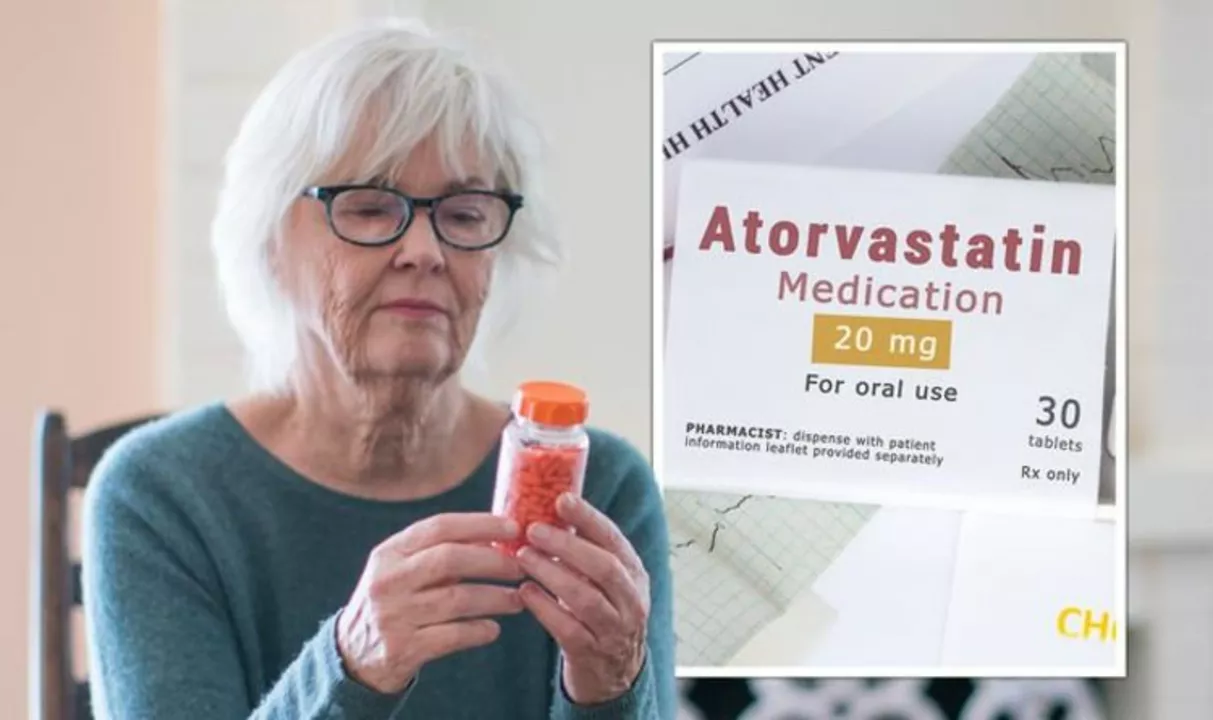Understanding the Connection Between Atorvastatin and Thyroid Health
As someone who has been researching thyroid health and its impact on our overall well-being, I have come across a lot of information on medications and their potential side-effects. One medication that has caught my attention is atorvastatin, a widely prescribed drug for managing cholesterol levels. In this section, we will delve deep into the relationship between atorvastatin and thyroid health, exploring the potential benefits and drawbacks of this medication.
How Atorvastatin Works and Its Role in Thyroid Health
Atorvastatin, commonly known as Lipitor, is a statin drug that works by blocking a specific enzyme responsible for the production of cholesterol in the liver. By reducing the levels of bad cholesterol (LDL) and increasing the levels of good cholesterol (HDL), atorvastatin helps in preventing heart diseases and strokes. The thyroid gland plays a crucial role in regulating cholesterol levels in the body, which is why it is essential to understand how atorvastatin interacts with thyroid health.
Atorvastatin and Hypothyroidism: A Potential Beneficial Interaction
Hypothyroidism, a condition where the thyroid gland produces insufficient thyroid hormones, has been linked to high cholesterol levels. In such cases, atorvastatin can serve as a helpful adjunct therapy for managing the elevated cholesterol levels associated with hypothyroidism. By working in conjunction with thyroid hormone replacement therapy, atorvastatin can help in maintaining healthy cholesterol levels and reducing the risk of cardiovascular diseases.
Atorvastatin and Hyperthyroidism: A Possible Complication
On the other hand, hyperthyroidism is a condition where the thyroid gland produces excessive thyroid hormones, leading to an increase in the body's metabolic rate. This can cause a decrease in cholesterol levels, which might be further amplified by the cholesterol-lowering effects of atorvastatin. In such cases, the use of atorvastatin might lead to extremely low cholesterol levels, which can have adverse effects on the body.
Monitoring Thyroid Function While on Atorvastatin Therapy
Given the potential interactions between atorvastatin and thyroid health, it is crucial to monitor your thyroid function regularly while on this medication. This can be done through blood tests that measure the levels of thyroid hormones (T3, T4) and thyroid-stimulating hormone (TSH). By keeping a close watch on these levels, you and your healthcare provider can determine if any adjustments need to be made to your atorvastatin dosage or thyroid hormone replacement therapy.
Managing Side Effects of Atorvastatin in Relation to Thyroid Health
As with any medication, atorvastatin may cause some side effects. Some common side effects include muscle pain, liver enzyme elevations, and gastrointestinal issues. If you experience any side effects while on atorvastatin, it is essential to discuss them with your healthcare provider, as they might be indicative of an underlying issue with your thyroid health. Your healthcare provider may recommend adjustments to your medication regimen or additional tests to determine the cause of these side effects.
Drug Interactions: Atorvastatin and Thyroid Medications
It is essential to be aware of potential drug interactions between atorvastatin and thyroid medications, such as levothyroxine. Some studies have suggested that atorvastatin might interfere with the absorption of levothyroxine, leading to reduced effectiveness of the thyroid medication. To avoid this interaction, it is generally advised to take atorvastatin and levothyroxine at least four hours apart.
Natural Alternatives to Atorvastatin for Thyroid Health
If you're concerned about the potential impact of atorvastatin on your thyroid health, you might want to consider exploring some natural alternatives for managing cholesterol levels. These can include lifestyle changes such as adopting a healthy diet rich in fruits, vegetables, whole grains, and healthy fats, as well as engaging in regular physical activity. Additionally, some supplements, such as red yeast rice and fish oil, have been shown to help lower cholesterol levels naturally.
When to Consult a Healthcare Professional
If you have concerns about atorvastatin and its potential effects on your thyroid health, it is essential to consult with a healthcare professional. They can help you determine the best course of action for managing your cholesterol levels and thyroid health, whether that involves adjusting your current medication regimen or exploring alternative treatments.
Conclusion: A Balanced Approach to Atorvastatin and Thyroid Health
While atorvastatin can be helpful in managing cholesterol levels and reducing the risk of cardiovascular diseases, it's essential to be aware of its potential interactions with thyroid health. By closely monitoring your thyroid function, discussing any side effects with your healthcare provider, and considering natural alternatives when appropriate, you can strike a balance between the benefits and risks associated with atorvastatin and maintain optimal thyroid health.






Melissa Delong
I've been on atorvastatin for 5 years. The government and Big Pharma are hiding the truth: statins cause thyroid damage to make people dependent on more drugs. I stopped mine and my TSH dropped to normal in 3 weeks. They don't want you to know this.
My neighbor's cat got thyroid cancer after eating fish with statin residue. Coincidence? I think not.
Marshall Washick
I really appreciate how thorough this post is. I was diagnosed with hypothyroidism last year and started on levothyroxine, then my doctor added atorvastatin for my LDL. I was nervous at first, but monitoring my TSH every 8 weeks has been a game-changer. My numbers are stable now, and I feel more energetic than I have in years. Just take it slow, get tested, and don't panic.
Abha Nakra
As a clinical pharmacist in Mumbai, I see this daily. The levothyroxine-atorvastatin interaction is real but manageable. The key is timing - give them 4+ hours apart, preferably levothyroxine on empty stomach at breakfast, atorvastatin at dinner. Also, patients on both meds often need higher levothyroxine doses than expected. Don't assume the thyroid med is 'broken' if TSH is off - check timing first. Many docs overlook this.
Also, red yeast rice? Don't. It's basically unregulated statin. Same risks, no oversight. Stick to science.
Neal Burton
The notion that atorvastatin has 'beneficial interactions' with hypothyroidism is a dangerously oversimplified narrative peddled by lipidologists who haven't read the 2023 meta-analysis in The Lancet Diabetes & Endocrinology. The truth is, statins blunt mitochondrial function in thyroid tissue, reduce T4-to-T3 conversion, and elevate reverse T3 - all of which exacerbate hypothyroid symptoms under the guise of 'lowering cholesterol.' Your LDL is not your enemy. Your mitochondria are. And no, fish oil won't fix this. It's just a placebo with a higher price tag.
Tamara Kayali Browne
The author's claim that 'natural alternatives' like red yeast rice are viable is misleading and irresponsible. Red yeast rice contains monacolin K, which is chemically identical to lovastatin - a prescription drug. It's unregulated, variable in potency, and carries the same myopathy and hepatotoxicity risks without the safety monitoring. This post reads like a wellness blog masquerading as medical advice.